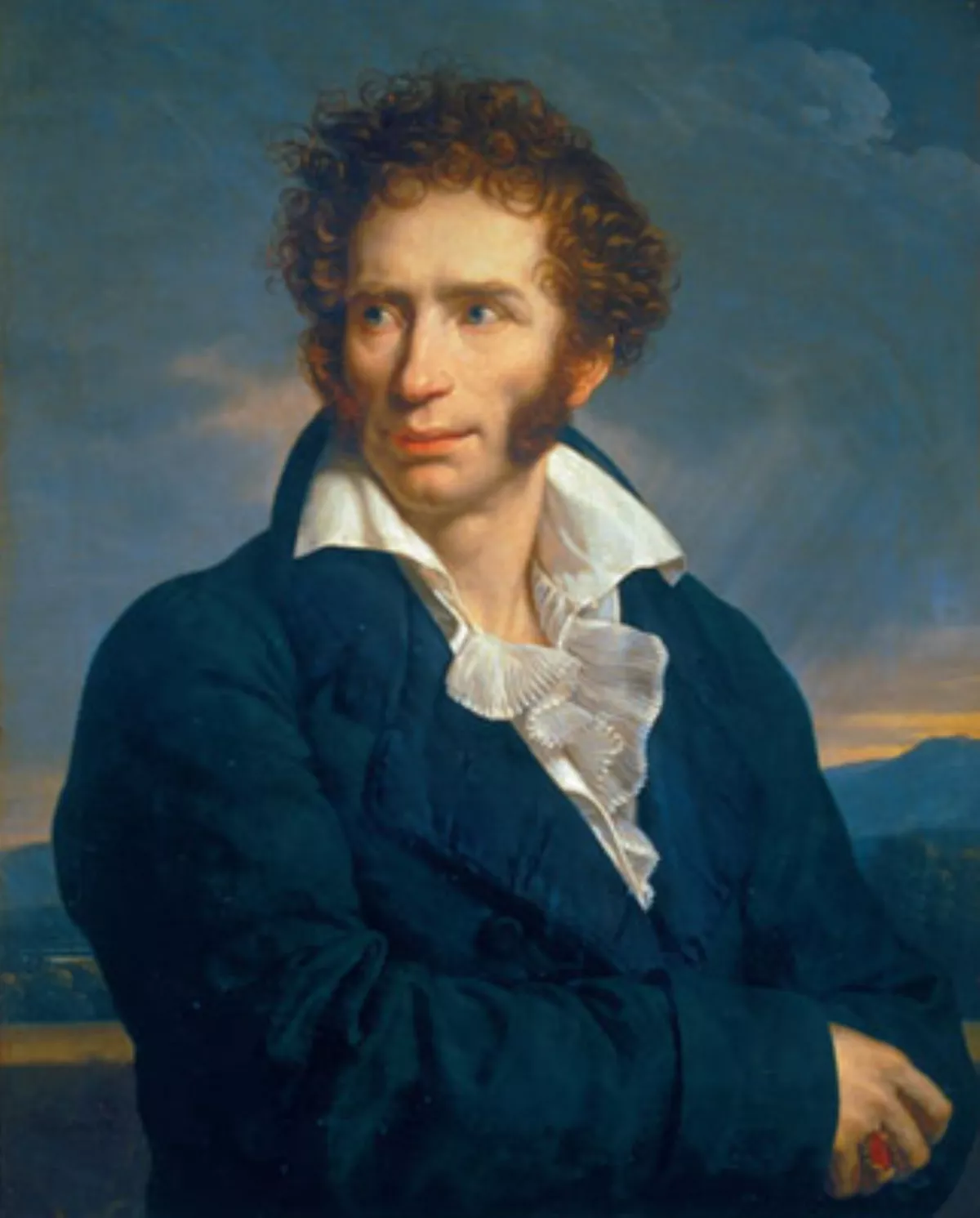 1.
1. Ugo Foscolo is especially remembered for his 1807 long poem Dei Sepolcri.

 1.
1. Ugo Foscolo is especially remembered for his 1807 long poem Dei Sepolcri.
Ugo Foscolo's father Andrea Foscolo was an impoverished Venetian nobleman and doctor, and his mother Diamantina Spathis was Greek.
Ugo Foscolo was a prominent member of the national committees, and addressed an ode to Napoleon, expecting Napoleon to overthrow the Venetian oligarchy and create a free republic.
Ugo Foscolo had seen the ideal of a great national future rudely shattered; but he did not despair of his country, and sought relief in now turning to gaze on the ideal of a great national poet.
Still hoping that his country would be freed by Napoleon, in 1799 Ugo Foscolo enlisted as a volunteer in the National Guard of Napoleon's Cisalpine Republic, was wounded at Cento, near Bologna, and taken as prisoner to Modena.
Ugo Foscolo took part in a failed memorandum intended to present a new model of unified Italian government to Napoleon.
In 1804, Ugo Foscolo returned to military service in Napoleon's cause, attached to the Italian Division of Napoleon's army, based in Boulogne-sur-Mer, as part of Napoleon's invasion force against Britain.
Ugo Foscolo himself was stationed in Valenciennes, where he fathered a daughter, Floriana, by Sophia St John Hamilton, daughter of Lady Mary Hamilton.
In 1807, occasioned by Napoleon's 1804 decree forbidding burials within city limits, Ugo Foscolo wrote his Dei Sepolcri, which may be described as his sublime effort to seek refuge in the past from the misery of the present and the darkness of the future.
In January 1809, Ugo Foscolo was appointed to the chair of Italian rhetoric at the University of Pavia.
In Pavia, Ugo Foscolo resided at the Palazzo Cornazzani, later home to Contardo Ferrini, to Ada Negri and to Albert Einstein, respectively.
Ugo Foscolo's version of Sterne is an important feature in his personal history.
Ugo Foscolo returned to Milan in 1813, until the return of the Austrians in 1815; from there he passed into Switzerland, where he wrote a fierce satire in Latin on his political and literary opponents; and finally he sought the shores of England at the close of 1816.
Ugo Foscolo died at Turnham Green on 10 September 1827, and was buried at St Nicholas Church, Chiswick, where his restored tomb remains to this day; it refers to him as the "wearied citizen poet", and incorrectly states his age as 50.